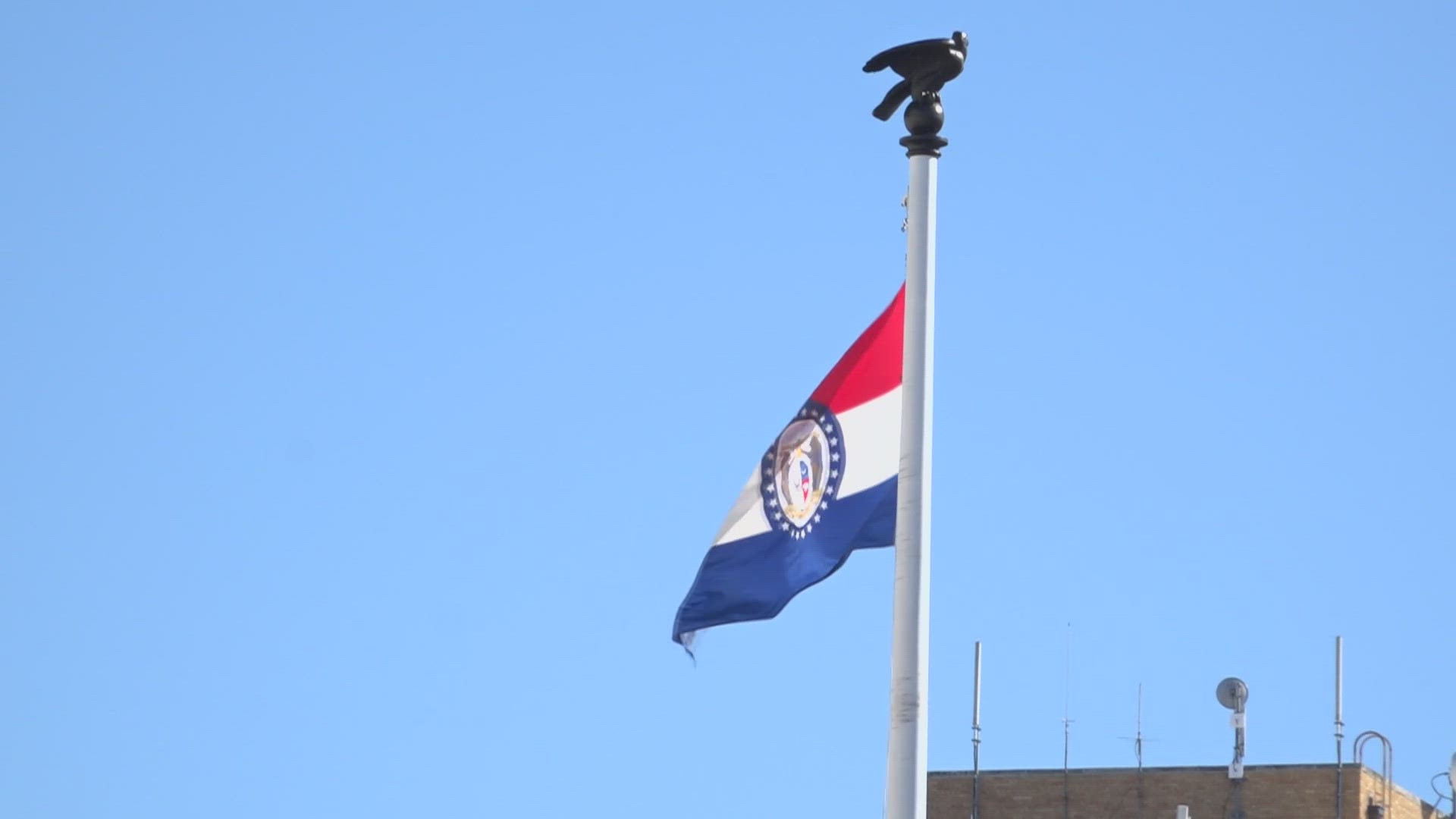ST. LOUIS — A Missouri judge is determining whether a law should go into effect on Monday.
Senate Bill 49 would ban minors from receiving gender-affirming healthcare in the state of Missouri. As for adults, Medicaid will not cover care and prisoners' access to surgeries will be limited.
But a lawsuit could block that law before taking effect soon.
On Wednesday, a legal battle took place in Springfield, Missouri before a judge who heard closing arguments. The lawsuit was brought by the ACLU of Missouri, Lambda Legal, and Bryan Cave Leighton Paisner LLP on behalf of three families of transgender young people, medical providers, and the organizations PFLAG National and GLMA: Health Professionals Advancing LGBTQ+ Equality.
They asked a County judge to temporarily block the law as the court's challenge plays out against it.
Lawyers for the plaintiffs wrote in a court filing that the law unlawfully discriminates against transgender patients “by denying them medically necessary care and insurance coverage because of their sex and because of their transgender status.”
The Attorney General's Office argued that the law is not discriminatory because it “applies evenly to boys and girls."
"I will not allow leftists to put their ideology over the health and well-being of our children. This is too important," Attorney General Andrew Bailey said in a tweet on Wednesday.
5 On Your Side reached out for an interview and a statement from Bailey. A spokesperson shared the AG’s tweets as a statement on how the hearing went:
The ACLU of Missouri, Lambda Legal, and Bryan Cave Leighton Paisner LLP issued a joint statement following the hearing:
“SB 49 threatens the health and wellbeing of all trans youth in Missouri, as well as all transgender MOHealthNet beneficiaries, young and adult alike. It threatens parental rights and interferes with the careful planning and decision-making undertaken by trans youth, their parents, and their providers.
"Over the past week, we were able to share the stories of the families of trans youth, medical providers, and membership organizations we represent, as well as show how access to gender-affirming medical care is necessary and essential to the health and well-being of countless transgender Missourians.
“SB 49 is not about improving patient care in Missouri; it is about preventing people from being transgender. The law is rooted in discrimination as it would deny evidence-based, necessary, and often lifesaving medical care to transgender people while a non-transgender person to obtain the same treatment.
"The state’s experts were not up to snuff as they conceded that there is no evidence supporting their approach and the level of evidence they would require for gender-affirming medical care is not required for most medical interventions. No other country in the world has enforced the restrictions as laid out in SB 49, which would put Missouri out-of-step with the rest of the world.
“We are appreciative of the court’s time and the opportunity to present our case. We look forward to the Court’s decision.”


Rene Freels has fought for her 17-year-old trans daughter for the last several years. The battle is why she's made the trek to Jefferson City year after year and tried to stop bills similar to Senate Bill 49. Freels was in the courtroom to watch the legal battle.
"It was harder to be in Springfield. It felt like the experiences of our kids was a sensational show," Freels said. "This bill is extremely harmful to trans people."
5 On Your Side also reviewed a recent poll by Saint Louis University/YouGov Poll. The August 2023 poll interviewed 900 likely Missouri voters:
- 63% of Missouri voters opposed allowing minors to receive gender transition medical care like hormone therapy or medication that can temporarily prevent the effects of puberty.
- 73% of voters opposed minors being allowed to have gender-affirming surgery.
- 44% of voters favored and 44% of voters opposed minors being able to receive gender-affirming counseling.
Political science associate professor Steven Rodgers said he believes this poll provides insight.
"What we want the legislature and the government to hopefully reflect public opinion in some way and then with this poll and these results, maybe a lawmaker may recognize, let's not just ban everything and not have a broad brush," Rodgers said.
Several groups including SQSH are providing support during this time. The group is a grassroots, community-based, queer-led organization that is dedicated to facilitating healing spaces and providing holistic support for queer St. Louisans to thrive.
SQSH’s Peer Support Helpline offers free, confidential, and identity-affirming emotional support and resource referrals, by and for the St. Louis LGBTQIA+ community. Call anytime between Friday to Monday, 1 p.m. - 7 p.m.
The judge is anticipated to issue a ruling as early as Friday but before Monday. If the law kicks in, then it will expire in August 2027.
Physicians who violate the law could face having their licenses revoked and being sued by patients. The law makes it easier for former patients to sue, gives them 15 years to go to court and promises at least $500,000 in damages if they succeed.

